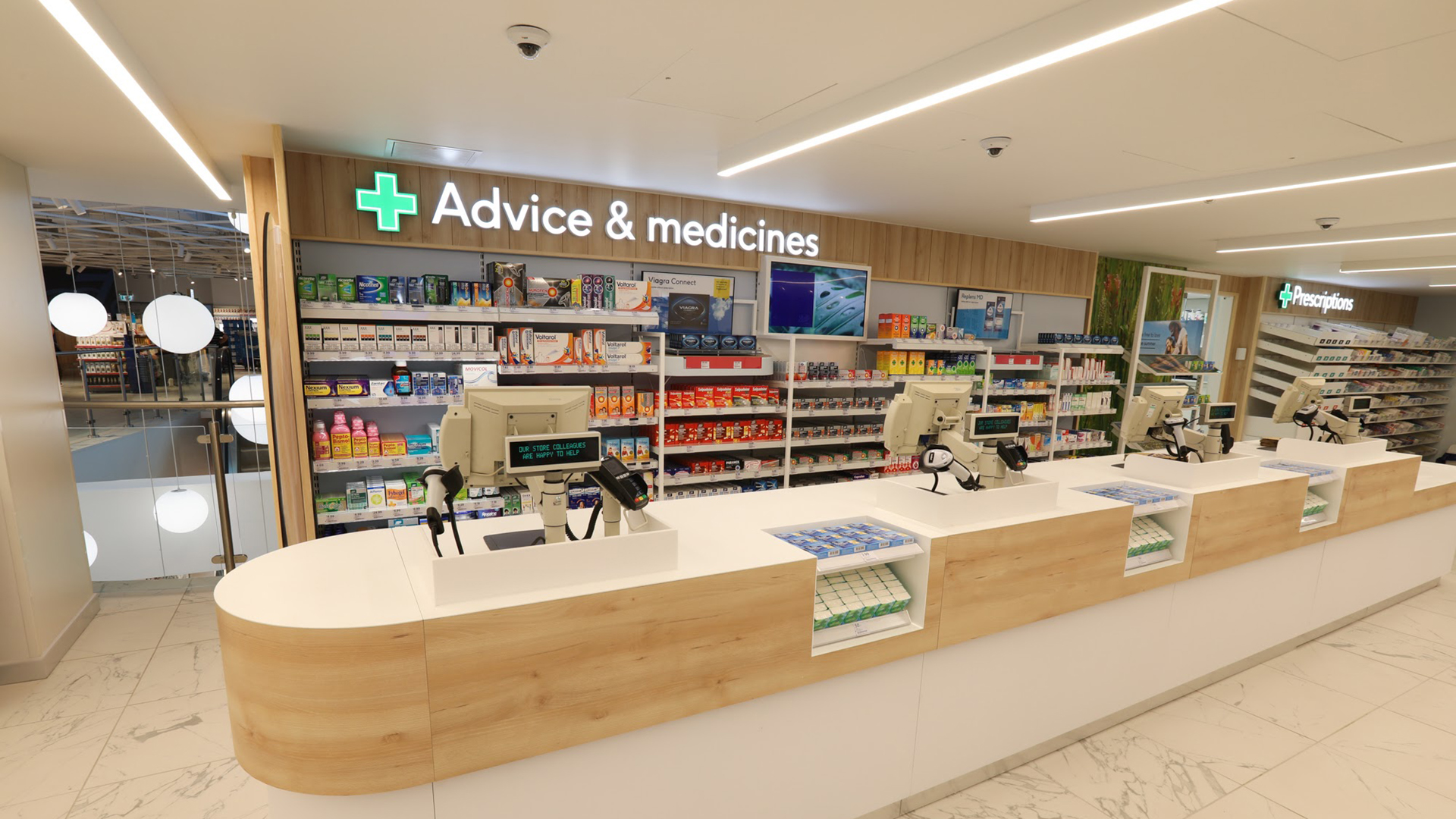Contrary to what all the earnest television advertisements claim, being stuck at home during quarantine isn’t always a warm and cozy experience. Most of us have felt a combination of conflicting feelings about our isolation, from relief to loneliness to plain old-fashioned boredom.
Then there are others who might be feeling another emotion: fear.
Home is anything but warm and cozy for victims of domestic abuse. The isolation necessary for public health may offer a new sense of control to abusers, and those who are forced to isolate with their perpetrators may find it harder than ever to reach out to their friends, families or co-workers for support. If your only time out of the house is when you run errands for essential supplies, how can you possibly escape your abuser long enough to ask for help?
Colleagues in two WBA businesses asked themselves the same question, and saw a possible solution: turn one of these “essential” errands into a lifeline during lockdown.
From pharmacy to safe haven
Boots pharmacies have long been a place people can turn to in their hour of need. With stores at the heart of so many communities, the pharmacy realized it could provide domestic violence victims a secure place that is easily accessible even during the pandemic. As part of the national “UK SAYS NO MORE” campaign by domestic abuse charity Hestia, anyone feeling threatened by an abuser can now access ‘safe spaces’ at Boots UK.
With many other options temporarily unavailable, this program allows anyone experiencing domestic abuse to walk into their local Boots store and discretely ask to use their pharmacy consultation room. Once safely inside, they can use the store’s telephone to contact specialist services for urgent advice and support, or seek a listening ear from a member of the pharmacy team. Since May 2020, pharmacy teams across Boots UK and Ireland have helped victims of domestic abuse on more than 600 occasions.
“Women or men who are 'forced' indoors with an abusive partner or family member really need a 'safe haven' where they can retreat to collect their thoughts and get support,” explains Sara*, a survivor of domestic abuse who lived in a Hestia refuge. “An abuser wouldn't think their victim could access help at the local pharmacy, so being able to contact a domestic violence helpline in this way will be life-changing for many.”

Now more than ever, essential workers such as Janky Raja, pharmacist at Boots in Coventry, England, hold a unique position in local communities as a single point of contact for victims. With a 47 percent increase in victims reaching out for information and support via Hestia’s domestic abuse app, there’s never been a more important time to provide a place of safety for those who need it most.
“The devastating reality is that 1 in 4 women and 1 in 6 men experience domestic abuse,” says Raja. “With so many people currently isolating at home with little contact with the outside world, it’s even harder for victims to reach out without arousing suspicion.
“As a pharmacist, my community puts its trust into my hands. Our doors are always open to patients who have questions about their medicines or concerns about minor ailments, but it’s incredibly heartwarming to know we might also be able to make a difference to these hidden victims of the coronavirus pandemic.”
When phone lines become lifelines
In Chile, calls to the violence against women phone line run by the Ministry of Women and Gender Equity increased by 70 percent in the first weekend of quarantine.
The ministry responded to these statistics by launching a campaign to reach women who may be subjected to domestic violence during stay-at-home mandates. Working with WBA’s Farmacias Ahumada and other pharmacies across the country, they initiated the #Mascarilla19 (“Mask 19”) movement, giving women who are not safe an opportunity to ask for help.

As the campaign’s name suggests, any woman who is experiencing domestic abuse can walk into a Farmacias Ahumada store and request a "Mask 19" from team members, which is code to implement an aid protocol. Without asking questions, pharmacy staff will reply that the stock is currently unavailable, but that you should leave your number, and they will let you know when new masks are back in stock.
After taking contact details, the pharmacist will call the violence against women phone line, and the ministry will in turn make contact with the woman seeking help.
“We believe our role in providing healthcare to Chileans goes far beyond products and medication, so it means so much for us to be a true support for women who suffer domestic violence,” says María Eugenia Errazuriz, human resources manager at Farmacias Ahumada. “We want women to feel they can come to us with confidence and that we will be there for them in their darkest moments.”
*Name changed for confidentiality.




